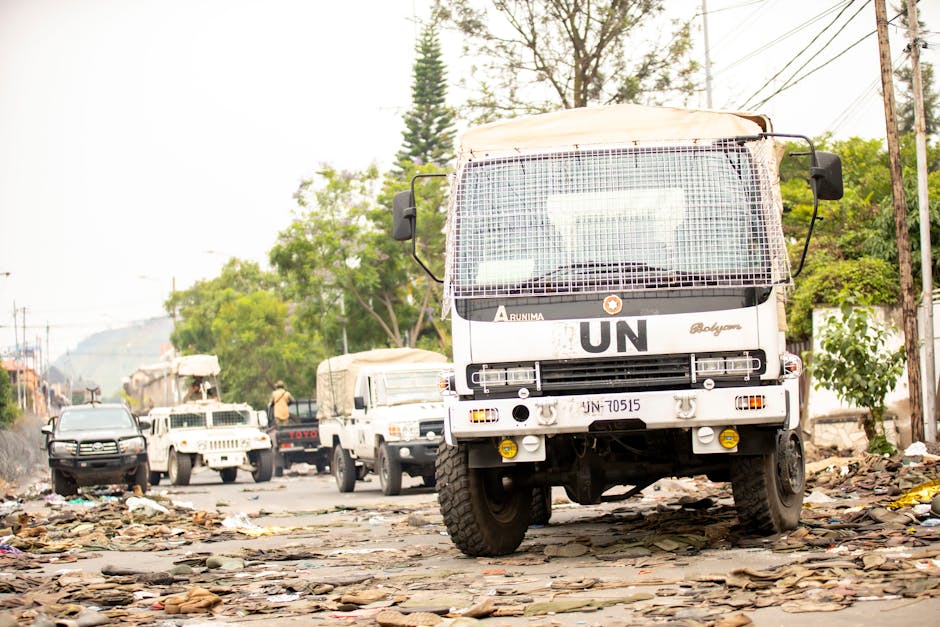UN Chief Blasts US-Backed Gaza Aid as ‘Death Trap’ Amid Soaring Casualties and Starvation
UN Chief Blasts US-Backed Gaza Aid as ‘Death Trap’ Amid Soaring Casualties and Starvation

In a scathing indictment, the head of the United Nations agency for Palestinian refugees has publicly condemned a controversial U.S. and Israeli-backed humanitarian organization operating in Gaza, labeling it “an abomination” and “a death trap costing more lives than it saves.” Philippe Lazzarini, Commissioner-General for UNRWA, delivered the powerful statement as reports emerged of escalating fatalities in the besieged territory.
The condemnation of the Gaza Humanitarian Foundation (GHF) comes amidst dire news from the Hamas-run Gaza Ministry of Health, which reported 79 people killed in the past 24 hours. Disturbingly, 51 of these deaths were said to have occurred near GHF distribution sites, fueling the controversy surrounding the new aid mechanism.
Eyewitness accounts from Gaza’s Nasser hospital paint a harrowing picture of desperation. “There is no food. The people have starved to death, and nobody gives a damn about Gaza,” one man told CBS News, describing young men dying in their prime for basic sustenance. Another individual warned parents against sending their children to aid sites, claiming youngsters were being shot, often in the head, near distribution points, calling the American charity “a trap.”
Lazzarini emphasized the urgent need to reinstate humanitarian principles, stressing that experienced organizations like UNRWA must be allowed to provide aid with dignity and respect. He lamented the world’s shifting attention while “atrocities continue” in Gaza, where a “confined and captive population is bombarded, besieged and constantly displaced.” He reiterated that “no place is safe in Gaza, and no one is spared,” highlighting that over 55,000 people, mostly women and children, are reported killed, and two million are starving.
While CBS News reported a decrease in Israeli bombardments on Monday, violence persisted, particularly around GHF aid distribution points. GHF, in a statement on Tuesday, asserted that its distributions proceeded “without incident” but formally complained to the IDF about alleged harassment of its convoys. The group also pushed back against “false allegations of attacks near aid distributions sites,” questioning the credibility of the Hamas-affiliated Gaza Health Ministry and inviting UN agencies to collaborate.
However, the U.N.’s aid agencies and other private organizations have largely refused to work with GHF. Their primary concern is that GHF’s operational model violates humanitarian principles by allowing Israel to control aid recipients and forcing people into further displacement to reach distribution sites. Despite these concerns, Israel and the United States maintain that the GHF system is necessary to prevent Hamas from diverting aid, an accusation the designated terrorist organization denies. The funding and management of GHF, which began operations in mid-May staffed by private, armed American security contractors, remain largely opaque.
Meanwhile, other aid efforts continue, albeit with limitations. A small number of trucks from the U.S.-based World Central Kitchen entered Gaza, and Israel’s COGAT reported over half a million pounds of baby food entering on Monday, alongside 79 trucks from various organizations.
The current crisis also shines a spotlight on UNRWA’s own precarious position. Long accused by Israeli authorities of links to terrorism, UNRWA faces a ban on its operations in the Occupied Palestinian Territories, enacted earlier this year. These accusations, stemming from alleged complicity of a dozen staff members in the October 7, 2023 attack, led to a temporary U.S. funding pause, which President Trump later made indefinite. Despite an internal U.N. investigation and an independent review finding no evidence for Israel’s claims, UNRWA’s financial situation is dire, with Lazzarini warning of unprecedented decisions affecting services and potential regional instability if funding isn’t restored.
Lazzarini underscored UNRWA’s vital role in providing government-like services to Palestinian refugees, services that he believes a future, functioning Palestinian state could eventually assume. He cautioned that a sudden loss of UNRWA’s services would only deepen suffering and despair, potentially sparking unrest across the region, a scenario he insisted the region “cannot afford, especially now.”
Disclaimer: This content is aggregated from public sources online. Please verify information independently. If you believe your rights have been infringed, contact us for removal.